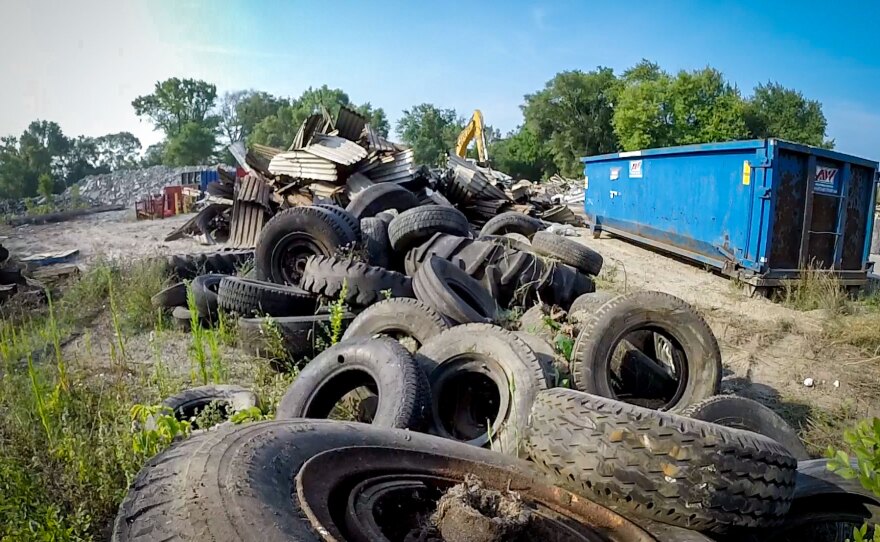Federal regulators are proposing new rules to cut carbon dioxide emissions, and it looks like one community in west Michigan has a decent head start.
In case you missed it over the summer, the Environmental Protection Agency is proposing cutting carbon emissionsby 30% by 2030.
Power plants are the biggest producers of carbon emissions in the U.S.
Here in Michigan, coal powers half of all homes and businesses. So utilities are probably going to have to stop burning so much coal in order to meet the requirements, assuming they are approved.
The City of Holland owns a coal plant. The James De Young plant is 75 years old.
After years of legal wrangling, a solution
A few years ago, the city thought it would try to update the plant by putting in some new, more efficient burners and making other fixes that would reduce the pollutants that spew from its towers.
But the community, environmentalists, and former Governor Jennifer Granholm put up a huge fight. There were lawsuits and appeals.
“I think as you go through life you look at things and if they’re hard, and they’re just extremely hard, there’s a reason,” said Dan Nally, the business services director of the city-owned utility.
The reason may have been that Holland just wasn’t meant to invest in coal again.
After winning the legal right to go forward with its plan for coal, the city collectively took a deep breath. Officials took a couple of years working through a community process to evaluate all of its options. Instead of coal, Holland decided the most cost effective option was actually natural gas.
“What happens is you’re out of choices. If you want to meet the regulations, you want to have a reliable system, what other options do you have?” Nally said.
Through the process, Holland has won over environmentalists who once fought the city ... sort of. The Sierra Club agreed not to challenge the natural gas plant as part of a legal settlement. Holland agreed to phase out coal.
Nachy Kanfer is with the Sierra Club’s Beyond Coal Campaign. He’s happy Holland has also invested in wind energy.
“Holland has also begun an innovative project on deep retrofits of residential homes in order to achieve energy efficiency and use energy more effectively and smartly,” Kanfer said.
But making the switch from the old coal plant to the new natural gas one will cut the city’s carbon dioxide emissions in half. Possibly more, Nally says.
More for the community than just cleaner power
Nally says there are other reasons the new plant is getting some buzz in the utility world.
We hopped in a gator so he could show me around the site where the city will build the new plant. They’re cleaning up some property that’s been sort of an unofficial back yard dump.
“Oh we found washing machines, all kinds of scrap steal, wires, fences,” Nally said.
They recycled the scrap metal and about 300 old tires. There were some old homes that had to be torn down. But the utility allowed groups to come in and remove valuables, like hinges, light fixtures and other items that were useful in restoring historic homes in Holland. The concrete basements were broken up and will be reused to help build the new plant.
They’re restoring wetlands near the Macatawa River where this awful invasive plant called Japanese knotweed has totally taken over. Nally says once the plant is finished two years from now, there will be a bunch of trails where people can walk and bike all around the plant. It’s in an area adjacent to Holland’s historic Windmill Island.
The Holland Energy Park is going to be one of the first things people see when they drive into the east side of the city.
“You could have a coal fired power plant sitting here with a plume. That’s one statement. Or you could have a world class natural gas fired power plant that’s in a beautiful building in a park setting. That’s another statement,” Nally said.
It’s still not clear how Michigan will meet the proposed carbon cutting rules. So Nally says it’s hard to know how Holland will fit into the strategy. But he is sure they’re in a better spot now.
Federal regulators are accepting feedback on the proposed rules through the end of the month.













